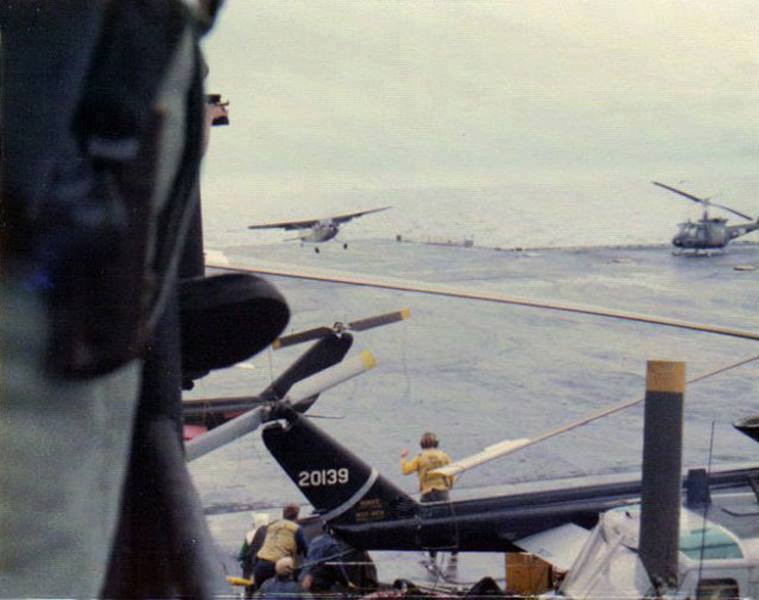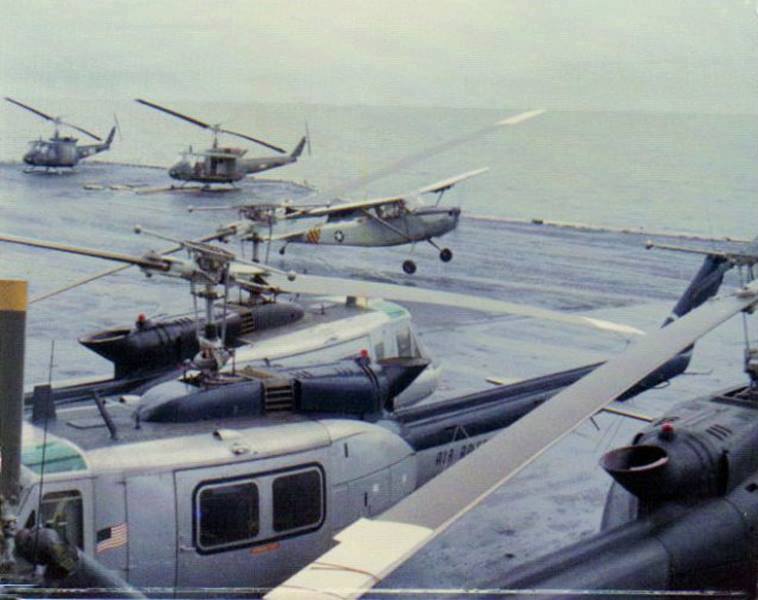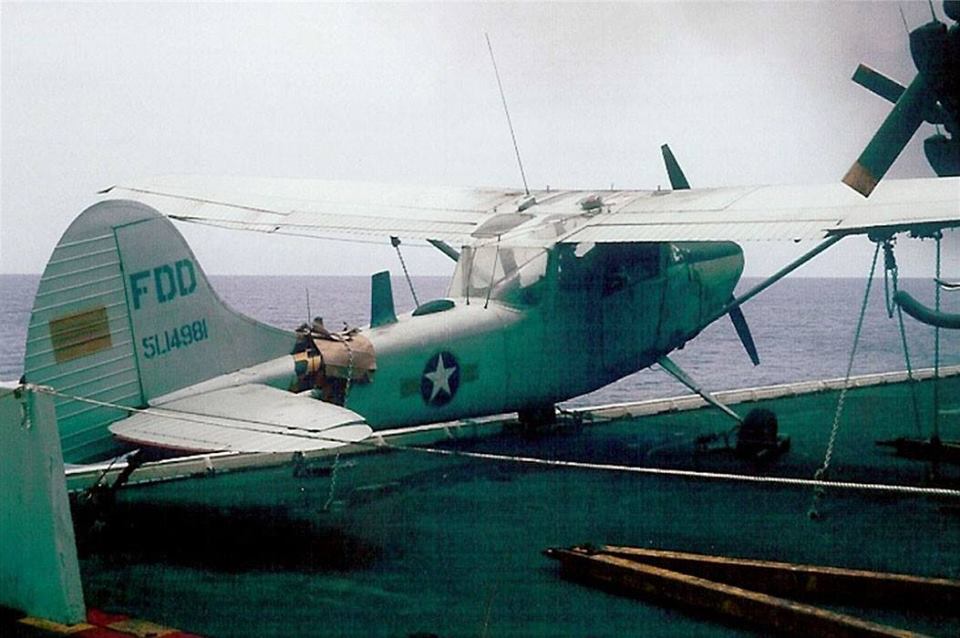Landing the Bird Dog on the deck of carrier without a tailhook was no easy task. Nevertheless Maj Ly Bung made an excellent landing.
In April 1975 South Vietnam was in the process of being overrun by the North Vietnamese. The end of the decades-old Vietnam conflict approached, and many South Vietnamese desperately tried to escape the country before the takeover by North Vietnam.
According to Naval Historical Foundation’s article The Opportunity to Make History: Vietnam War Hero’s Flight to Freedom Remembered, the U.S. Navy was busy cooperating with South Vietnamese forces in Operation Frequent Wind, the largest helicopter evacuation in history. Operation Frequent Wind was the final phase in the evacuation of American civilians and Vietnamese from Saigon, South Vietnam.

Although the U.S. ran the operations during Frequent Wind, several South Vietnamese aviators took it upon themselves to escape in countless helicopters and planes.
On Apr. 29, around mid-morning, CH-53s and HH-53s began cross-decking processed evacuees from the USS Midway (CV-41) to the Military Sealift Command ships scattered around the ocean nearby. During this operation, a Vietnamese Air Force (the South Vietnamese Air Force or VNAF) O-1E Bird Dog appeared overhead and set up a holding pattern around the carrier. The deck was full of helicopters working on the transfer. The initial decision was to deny landing and the carrier zigzagged to prevent an approach. As explained by Albert Grandolini in his book Fall of the Flying Dragon, South Vietnamese Air Force 1973-75, when this failed to discourage the pilot, Maj Ly Bung of the 114th Observation Squadron, an attempt was made to convince him to ditch near the carrier and a smoke bomb was dropped in the water while a U.S. Navy rescue helicopter hovered overhead. Again unconvinced, the VNAF pilot tried to drop a message on the deck, failed, and then succeeded with a second. The message was clear:
“Can you move the Helicopter to the other side, I can land on your runway, I can fly 1 hour more, we have enough to move. Please rescue me.
Major Bung, wife and 5 children.”

He was going to land, even if the helicopters were in the way. The deck was cleared, the carrier’s course straightened, and the speed increased to 30kt.
Midway Commanding Officer Capt. Larry Chambers recollects the events:
“The sky was overcast. Light rain was falling. Not much of a sea state. When we turned into the wind we had 40 kts over the deck (15 knots natural plus 25 knots that the old girl was making). My only concern, besides the Admiral telling me not to do it, was whether or not Major Ly would carry enough power to get through the burble and down draft aft of the ship. The high wind over the deck increases the downdraft and the turbulence. Because we were operating helos, I had given the engineers permission to shut down half the plant for maintenance. When I told the chief engineer that I needed 25 knots, he informed me that we didn’t have enough steam. I ordered him to shift the hotel load to the emergency diesel. You get the idea. In addition, we stripped the arresting gear cross deck pendants. At Ly’s approach speed, my only worry was getting him across the ramp. His relative speed couldn’t have been more than 20 to 25 knots.”
Ly received the “green light” from the tower and had permission to land. Landing the Cessna on the deck of the carrier without a tailhook was no easy task. Nevertheless Ly Bung made an excellent landing while the deck crew applauded, as USS Midway Air Boss Vern Jumper explained to KPBS:

“We had 30-40 knots right down the angle deck, and he started his final approach. He then made a beautiful carrier landing without a tailhook. He touched down right in the wire area – we’d stripped the wires off the deck because that would have felled him up. He touched down right where he should have, bounced once, rolled up the deck, and was stopped before he got to the end of the angle deck.
My flight deck crew ran out to grab him before he went over the angle deck, but he didn’t. The major and his wife jumped out of the cockpit, pulled the backseat forward, and out tumbled all these little kids. Five little kids they had. She was holding a baby in her arms when he landed.
Oh, when he landed my flight deck crew and all the other guys that were working on the flight deck in the squadrons and the ship’s company ran out there. And they’re hooping and hollering and making so much noise. They were so proud, so glad that they saved this guy.”
Maj Ly Bung’s aircraft, still in its VNAF markings, is now displayed in the Naval Aviation Museum in Pensacola, Florida.
In the following video, you can see Maj Ly Bung’s Bird Dog landing aboard USS Midway.
Photo by U.S. Navy

